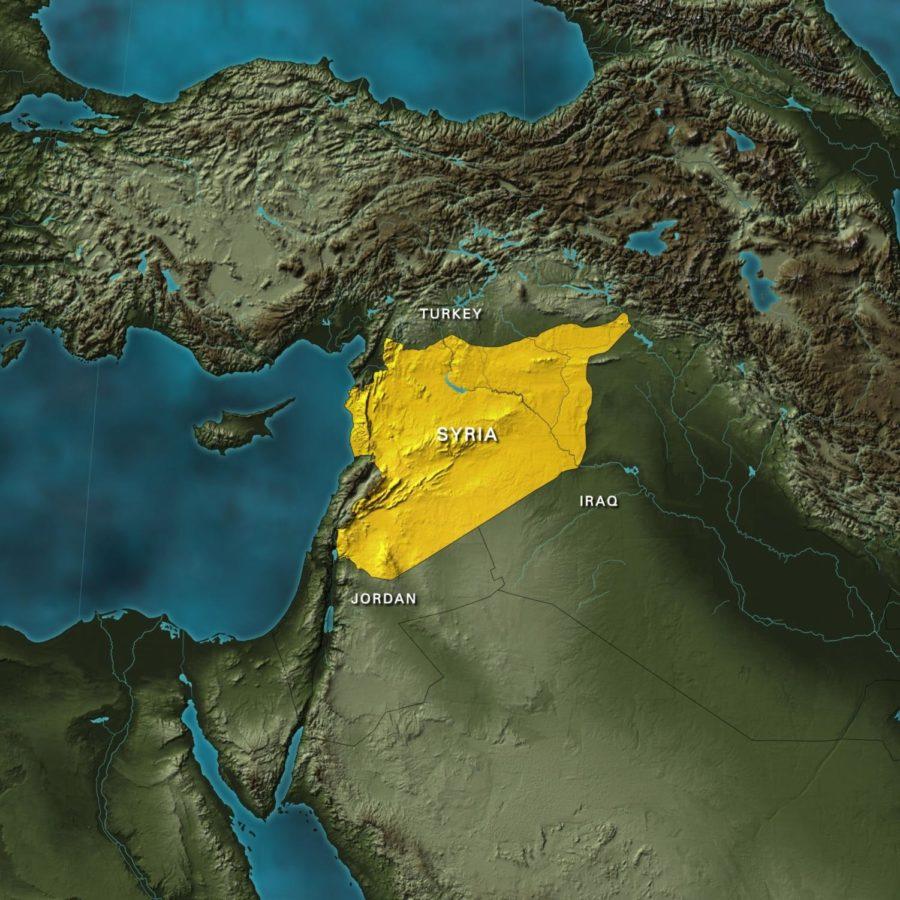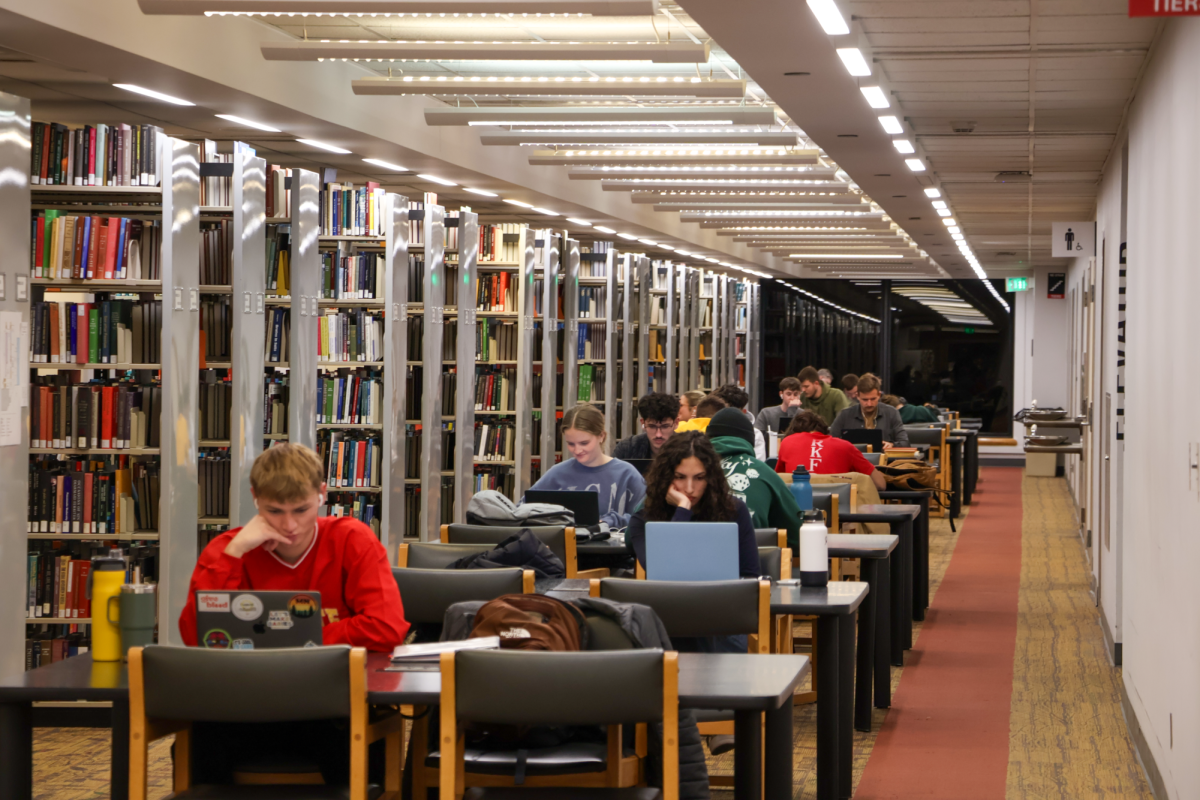Official: Arab League monitors made ‘mistakes’
Photo courtesy of CNN Wire Service
This map shows Syria and also identifies neighboring countries: Turkey, Iraq, and Jordan.
January 5, 2012
Arab League monitors made “mistakes” during their fact-finding mission in Syria, a top Qatari official said Thursday.
Sheikh Hamad bin Jassim al-Thani told reporters the league is seeking technical assistance from the United Nations for its mission, which has been lambasted by many critics for failing to halt violence. Al-Thani serves as Qatar’s prime minister and foreign minister
He didn’t elaborate on the errors, but he stressed that the mission is of an “observatory nature, not to intervene in stopping the violence.”
Members of the Syrian National Council opposition movement met with Arab League officials in Cairo on Thursday to discuss the mission.
“We requested more monitors and better logistical and general support to the mission,” council member Walid Buni told CNN. “We also highlighted some of their mistakes and requested the league be more precise in their statements.”
Buni cited an example of what he said was a mistake. He said Nabil el-Araby, the Arab League secretary-general, announced the release of nearly 3,500 detainees, but noted that the information came from the Syrian government and hadn’t been verified.
“I think these mistakes are due to the limited experience some of the monitors have in dealing with such a regime,” Buni said.
The Arab League is meeting on Sunday to discuss the monitoring mission.
An Arab League official who asked not to be named said the league will be discussing a preliminary report from the findings of the monitors. He said it will be presented by Lt. Gen. Mohamed Ahmed Mustapha al-Dabi, the Sudanese military official who is heading the observation mission.
Jeffrey Feltman, U.S. assistant secretary of state for Near Eastern Affairs, was in Cairo on Thursday discussing a number of issues with Arab League officials, including the monitoring mission.
“We are waiting to see what the Arab League is saying after their meeting,” he said.
Syrian state TV announced the release Thursday of 552 detainees “whose hands were not stained with the blood of fellow Syrians.” The government has announced the release of other detainees during the observer mission.
Between 5,000 and more than 6,000 deaths have occurred over the past 10 months during the government crackdown against protesters, according to various counts. President Bashar al-Assad’s government says it is putting down armed terrorists and blames the bloodshed on them.
On Thursday, violence led to 19 more deaths in five provinces, according to the Local Coordination Committees of Syria, an opposition activist group. Twelve people died in Deir Ezzor, three in Homs, two in Damascus province, one in Idlib, and one in Aleppo.
The LCC reported these incidents:
People died amid heavy shooting and a security crackdown in the village of Ghariba in Deir Ezzor province, in the eastern part of the country. A massive demonstration was reported in the city of Deir Ezzor. Sproadic gunfire was reported in Hasaka in the northeast.
Demonstrators staged a sit-in in a Homs neighborhood. Security forces used gunfire to disperse demonstrators in Aleppo, the Daraa province town of Hirak and the Damascus suburban town of Douma. Security forces and the army launched raids in the Damascus suburb of Harasta.
The al-Assad government agreed to a peace initiative with the Arab League that calls for security forces to withdraw from cities, release detainees and end violence. Part of the agreement calls for Arab League observers to monitor whether the government abides by the initiative. That mission began late last month.
Since the conflict began, reports on brutality in Syria have been issued by political activists and human rights watchdogs.
The political activist group Avaaz issued a report on Thursday detailing “atrocities” in Syria’s detention facilities.
“Bashar al-Assad’s security forces are detaining and in most cases torturing Syrian citizens opposed to the regime in overcrowded prisons, jails and illegal detention centers across the country. Avaaz has compiled the locations of these dungeons — which even include schools — and the names of regime loyalists running the facilities and the torturers-in-chief setting detention policy at the highest levels,” the group said.
The group called on the Arab League monitors to visit what Stephanie Brancaforte, an Avaaz campaign director, called “torture chambers.”
The group said 69,000 people have been detained over a-nine month period and more than 6,800 people have died, including more than 600 by “torture.”
“Of the 69,000 detained since March, over 37,000 people remain in detention and some 32,000 people have been released, many of them bearing scars from torture and violence,” Avaaz said. The group said it confirms deaths or arrests with “three independent sources, including a family member of the deceased and, in the case of a death, the imam who performed the funeral procession.”
CNN cannot independently confirm events inside Syria because the government restricts the activity of international journalists.
CNN’s Mohamed Fadel Fahmy, Schams Elwazer, Tracy Douiery and Joe Sterling contributed to this report







